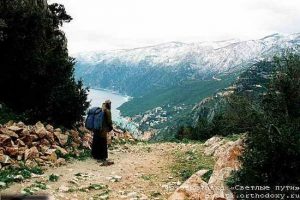St. Nikolai Velimirovich on God’s Eternal Presence
“God’s own life is dramatic internally, and externally (in relation to the world). That is the real meaning of the dogma of the Trinity. God is somehow one, and yet not one; rather He is a pluralistic unity. He can take part in the human drama and still remain the God of the Universe. He can suffer and still remain perfect. He can be omnipresent in the world and still not be wholly immersed in it. “I cannot understand it; it is a mystery to me,” exclaimed Tolstoi. Certainly he could not understand it; who could? We cannot understand our own beings. Modern biology discovered that a human body consists of millions and millions of corpuscles, minute organic cells which live their life and go their way unconscious of the human person formed by themselves. New discoveries may open up new problems, but the ancient mysteries about everything in the world continue to be omnipresent. How could we have more knowledge about God except some few glances, some imperfect allusions, some symbolical combinations? However, lacking a clear and perfect understanding, we still feel that we are not alone in the world. God is all round us like the atmosphere that we breathe. The more we try to escape from this atmosphere, the closer it seems to pervade us.”
– ‘Religious Spirit of the Slavs’
